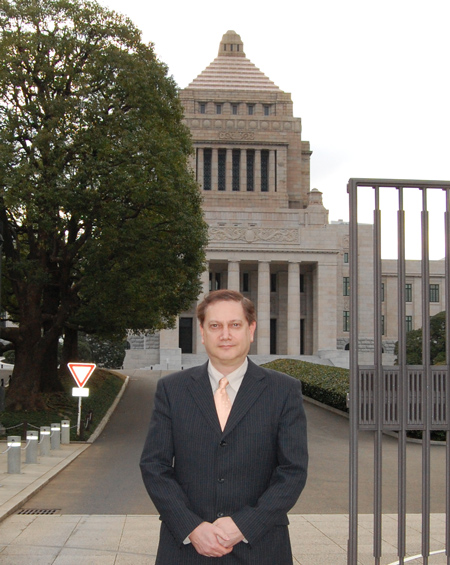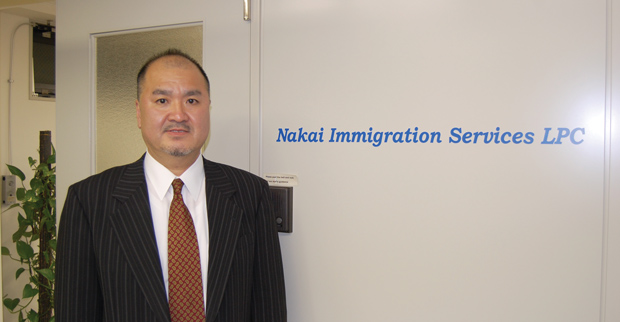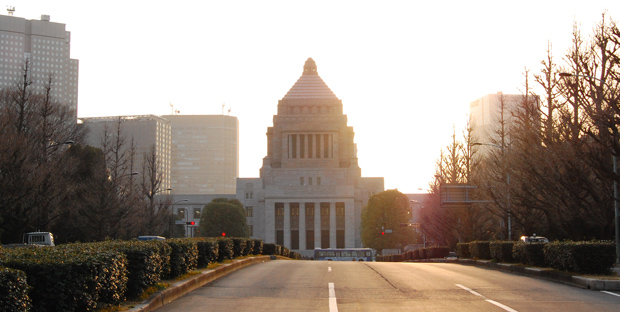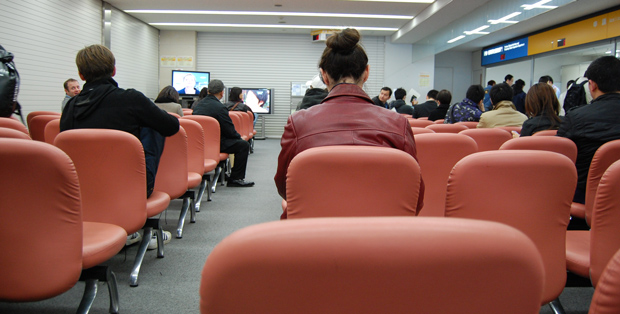Could you be deported for not having health insurance? If you read newspapers or blogs, you’ll know that the Japanese government was due to pass new guidelines from April this year, linking visa renewal to the national healthcare system. This would mean no health insurance equals no visa.
As my visa was due to expire this month I wanted to discover the facts. To understand the new rules I visited Japanese immigration, met with a healthcare lobbyist and even visited an immigration lawyer. The rumors began to spread last year after the Japan Times ran an article with the headline, “Enrollment in Japan’s health insurance program tied to visa renewal from 2010.” Countless websites, Facebook pages and forums covered the issue, but all the chatter did nothing to clarify the vague guidelines.
“All foreigners who want to renew their visa will need to present proof that they have a public heath insurance plan,” read one blog. “Any foreigners not registered in national health insurance who are thinking of extending their stay had better look into registration ASAP,” exclaimed another. Yet after more searching, I found sites claiming the opposite was also true. “If a health insurance ID card is not presented [to an immigration officer], that alone cannot be sufficient reason for rejection or denial of a visa,” one post remarked. The internet is great for quick access to facts, but it is also full of misinformation, hearsay and even lies. As a concerned foreigner in Japan, I had to find out more.
Stand in Line
I joined the crowd gathered at a bus stop outside Shinagawa station. The number 99 bus pulled up, and I followed the multilingual signs, dropped ¥200 into the box and boarded. A Sikh man got on, then a Latin American family with a baby. Next to me phones were answered in Mandarin, and people were having animated conversations in Korean, Tagalog and Portuguese. For the next few minutes this group of strangers would have something in common: we were all headed to the Tokyo Regional Immigration Center.
As I left the bus, a Filipino woman asked me in several languages, “Where are you from?” as she pushed a discount phone card into my hand. A Chinese woman handed out copies of the Epoch Times newspaper, and Bangladeshi man gave me a leaflet advertising guided tours of Tokyo. ‘Welcome—Japan!’ it enthused in not-so-perfect English.
The immigration center is a place most people visit only every few years, but for some migrants this first port of call is also the last, as emphasized by the ominous signs for detention and deportation. From November 2007 digital fingerprinting and photography became standard at all Japanese airports, and within the next couple of years all foreigners will be issued a new type of ID card with an embedded chip, replacing the standard alien registration card. All information will be centralized at immigration. Outstanding city taxes, being unemployed, or having a criminal record count against those looking to renew their visas, but health insurance had never been mentioned—until last year.
Rows of seats, long counters, racks of forms, and long queues greet visitors on entry to the immigration bureau. I noticed posters and leaflets in Russian, French and Spanish, which suddenly made me realize the wealth of nationalities that make up the larger group called gaijin (foreigners) in Tokyo. I enquired at the counter whether or not proof of national health insurance would be necessary to renew my visa, but all I got was a confused response telling me to call my company for advice. Judging by the bewildered looks on the faces around me, I was not the only one who needed clarity. A Canadian named Jeff who was waiting for his number to be called told me, “My company sponsors [my visa], and they provide private health care.” Pablo from France commented, “I have insurance from home, and I don’t know about the Japanese system.” With so many different foreigners here, I wondered how the immigration office could enforce enrollment in the national healthcare system, particularly for people with international coverage bought abroad.
 Ronald Kessler, Founder of the Free Choice Foundation
Ronald Kessler, Founder of the Free Choice Foundation
Choices
I had been in touch by email with a group mentioned often on Japanbased English blogs, the Free Choice Foundation. According to the organization’s website, it is a “grass-roots movement seeking an understanding with the Japanese Government, concerning the needs of the foreign community of Japan.” The goals of those involved with Free Choice are to “compile the facts and present the issues.” Eager to learn more about these facts and issues, I set up an interview with Free Choice founder Ronald Kessler, a permanent resident of Japan for 31 years. Kessler was in Tokyo to talk with a prominent politician about the issue of healthcare for foreigners, and I really wanted to discover what he had learned from his numerous meetings.
I met Kessler in front of the national diet building in Nagatacho, where he explained his position to me. “The minute I saw these guidelines, I thought, they didn’t think this through at all,” he said. The guidelines in question are a list of eight things the government will require residents to have in order to renew their visas, such as no outstanding taxes. The eighth guideline was the one that addressed the issue of health insurance. Kessler showed me the updated version, released last month, which showed only seven points. “Immigration was going to check [that foreigners were enrolled in national health insurance],” he said. “It took a whole year to get it removed.”
Kessler is no stranger to lobbying in Japan. Over ten years ago he successfully campaigned to stop his local ward office from fingerprinting foreigners. Victory came when office workers finally agreed, literally tearing up his records.
The immigration bureau in Japan is notorious for providing misleading and inconsistent information. Staff of the Free Choice Foundation called many local offices, and they too got conflicting replies. “Answers varied from those saying that private health care would be OK to those saying we’d be deported,” Kessler said. The latest guidelines rectify the issue by remaining mum. Immigration officers may give out a leaflet promoting the benefits of the national health care system, but Kessler points out, “If you are not enrolled, they will not twist your arm.”
The Japan Times reported in February, “The [immigration] bureau will delete item number eight by the end of March, and ‘lightly mention’ the need to present a health insurance card in the introductory passage of the guideline.” Kessler that said after previous meetings with the Ministry of Justice, he knew the guideline would be cut. In January, he broke the story to a reporter at the newspaper, who then called immigration to check, only to be told by a stunned office worker, “We have no intention of doing that.” By taking his case directly to the lawmakers, Kessler was able to get the facts even before they had trickled down through the layers of Japanese bureaucracy to the immigration officials.
 Immigration Lawyer, Masahito Nakai
Immigration Lawyer, Masahito Nakai
The Law
To further clarify the implications of not enrolling in public health insurance, I went to visit one of Tokyo’s longest established immigration lawyers, Masahito Nakai, who has been working with foreign clients for 18 years. In his office near Daimon station, I was shown a legal file thicker than a Tokyo phone directory and containing hundreds of successful applications just from the past week. When Nakai started, his office only handled around a hundred visas per year, but today that number is in the thousands. We talked about the recent changes to the guidelines. “This is good news for the foreign community,” explained Nakai. “I understood the Ministry’s idea, but it was too short notice and impossible to cope with. It is far better to give people choice.” The Japanese government would like all expatriates to enroll in the national health insurance scheme, but now clearly points out that it will “never deny an application because of a different health care choice.”
As a lawyer specializing in immigration law, Nakai was able to cover all the bases in detail, explaining that having no insurance could potentially slow the processing of one’s application, or mean an applicant could be asked to write a letter explaining what alternative coverage he or she has. He handed me an official looking notice he gives to his clients to make the issue clear. “The previous version explicitly required the enrollment in the social insurance system as one of the requirements for the approval of extension or for a change of status,” it reads. “This requirement was eliminated.”
For more information on immigration laws and requirements for visa renewal, check the following websites:
www.freechoice.jp
www.tokyovisa.co.jp
www.moj.go.jp/english










